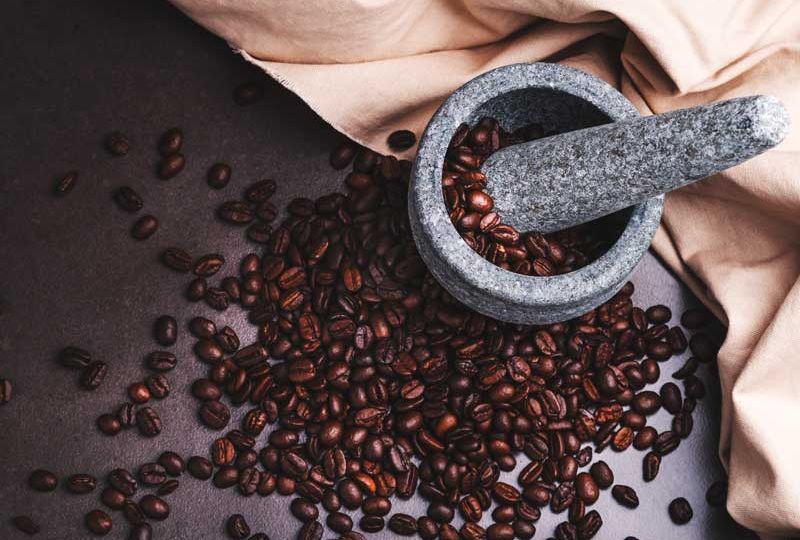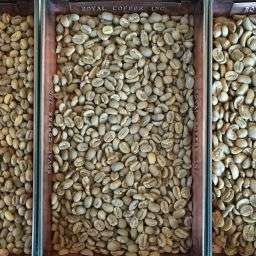
The traditional process of brewing coffee typically involves grinding beans to unlock their flavors and aromas. However, an intriguing alternative exists that bypasses this step altogether: brewing coffee with whole beans. This method not only offers a unique flavor profile but also provides practical solutions in situations where a grinder is not available.
Whether due to a broken grinder, a desire to reduce equipment, or simply the thrill of experimenting with coffee brewing methods, brewing coffee beans without grinding them presents an interesting challenge and opportunity for coffee enthusiasts.
Brewing Methods
The Double Boiler Method
The double boiler method involves using a saucepan and a mason jar to brew coffee without grinding the beans. This technique requires filling a saucepan with water and bringing it to a boil, then adding coffee beans to a mason jar and placing it within the saucepan.
The setup simulates a double boiler, allowing the coffee to simmer gently. The key to success lies in maintaining a simmer for 45 to 60 minutes and stirring the mixture every 10 minutes. This method ensures a gradual extraction of flavor and aroma, resulting in a surprisingly rich and full-bodied brew.
Cold Brew Method
Cold brewing with whole beans is a slow but rewarding process. It involves placing whole coffee beans in a jar or container, adding cold water, and allowing the mixture to steep in the refrigerator for 12 to 24 hours. The general ratio of coffee to water is 1 ounce of coffee to two cups of water. After steeping, the coffee is filtered to remove the beans, leaving a smooth and flavorful cold brew. This method is perfect for those seeking a less acidic and smoother coffee experience.
Direct Boiling Method
The direct boiling method is straightforward yet effective. It involves adding whole coffee beans and water into a pot and bringing the mixture to a boil. Stirring frequently is crucial to prevent the beans from burning. After reaching a boil, the heat is reduced to a low simmer for about five minutes. The coffee is then cooled slightly before filtering out the beans. This method emphasizes the importance of careful monitoring to avoid overcooking and to achieve a delicious cup of coffee.
Immersion and Steeping
Immersion and steeping involve using a flask or mason jar filled with whole coffee beans and hot water just off the boil. The optimal water temperature is around 195 to 205°F. The coffee beans and water are then allowed to steep for about an hour, with occasional shaking or stirring to promote extraction.
This method is praised for producing a clean-tasting coffee by allowing a slow and gentle extraction of flavors. It is especially convenient for brewing coffee on the go or in settings without sophisticated coffee brewing equipment.
Pros
Brewing coffee without grinding the beans first has several advantages. Primarily, it maintains the freshness and aroma of the coffee beans, as grinding accelerates the oxidation process, leading to a loss of volatile aromatics. This method also allows for the exploration of distinctive flavor profiles that may not be as pronounced with ground coffee.
Moreover, certain brewing methods, such as cold brew or immersion, can be more straightforward and require less equipment, making them ideal for situations where a grinder is unavailable or impractical.
Cons
However, there are notable drawbacks to brewing coffee with whole beans. The most significant is reduced extraction, as the surface area of whole beans is much smaller compared to ground coffee, leading to potential underextraction.
This results in a cup of coffee that may lack depth and complexity. Additionally, the variable size of whole beans can cause uneven extraction, further complicating the brewing process and affecting the consistency of the final product.
FAQs
Can you make a cold brew with whole beans?
Yes, cold brewing with whole beans is feasible and results in a less acidic, smoother coffee. This method requires steeping the beans for an extended period, typically 12-24 hours, to adequately extract the flavors.
Is it better to grind your own coffee?
Grinding coffee beans just before brewing is recommended for the freshest, most flavor-packed experience. Freshly ground coffee has more of its essential oils and aromatics intact, offering a superior taste profile.
What is the best roast for cold brew with whole beans?
A dark roast is preferred for cold brewing with whole beans. Its robust flavor profile is better suited to the cold brew method, allowing for the extraction of rich, nuanced flavors even at lower temperatures.
Can you use regular ground coffee for cold brew?
While you can use regular ground coffee for cold brewing, coarse grounds or whole beans are recommended to avoid over-extraction and bitterness. Coarse grounds allow for a more controlled extraction process, yielding a smoother and more balanced cup.
Conclusion
Brewing coffee without grinding the beans presents an intriguing alternative for coffee enthusiasts, offering benefits such as preserved freshness and unique flavor profiles. While there are challenges, such as reduced and uneven extraction, the various methods available, including the double boiler, cold brew, direct boiling, and immersion techniques, provide ample opportunity for experimentation and discovery.
Whether you’re in a pinch without a grinder or simply curious to explore the depths of coffee flavors, brewing with whole beans is a rewarding venture that underscores the versatility and rich sensory experience that coffee brewing can offer. Encouraged by the pros and cons and equipped with answers to common questions, coffee lovers are invited to experiment with these methods, potentially uncovering new favorite ways to enjoy their beloved brew.









